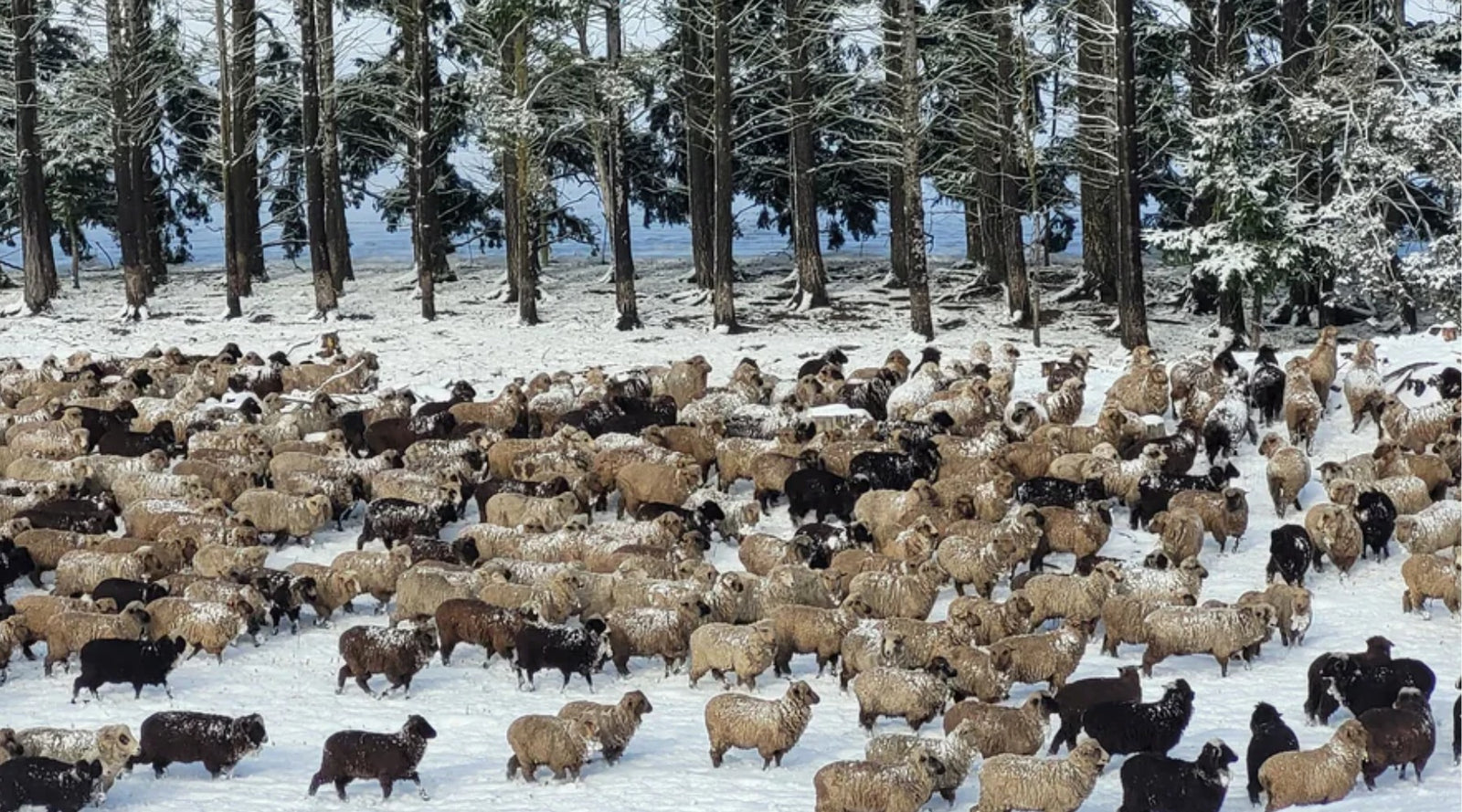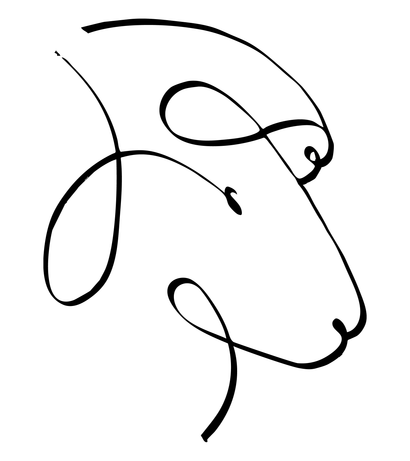Free shipping on all domestic orders over $150
Free shipping on all domestic orders over $150
Shop
Add description, images, menus and links to your mega menu
A column with no settings can be used as a spacer
Link to your collections, sales and even external links
Add up to five columns
Add description, images, menus and links to your mega menu
A column with no settings can be used as a spacer
Link to your collections, sales and even external links
Add up to five columns

Traceability in Wool--Look at Noro's Haunui and Haunui Blend Yarns
October 09, 2023 3 min read 2 Comments
In recent years, the knitting community has become interested in understanding not just the type of yarn they're using but also its origins. Traceability is an important factor for many knitters, and Noro's Haunui and Haunui blends are an example of beautifully traceable yarns. Haunui wool is sourced from a small farm in New Zealand owned by the Barber family who have been raising Haunui New Zealand Halfbred sheep for years. Their commitment to traceability is not a marketing gimmick but a reflection of their sustainable farming practices that are very much in line with Noro’s quality and environmental values. Noro began producing yarn using the Haunui sheep fibers in 2021 and now has three different Haunui yarns: Haunui Wool, Haunui Silk, and new Haunui Cotton.
I am super excited about these yarns, but I want to step back a minute and talk about what traceability means and why it matters.
What is traceability in yarn anyway?
Traceability is complete transparency of the movement of materials from their original source to the point at which you purchase them. For you and me, it means that you can follow the journey of your yarn all the way back to the sheep that produced the wool to my little shop where you buy it. Traceability gives you insight into the integrity of the process at every stage. With Haunui, you can see the Haunui sheep in their natural New Zealand habitat and meet the farmers who care for those sheep and tend to their health and well-being.
Why Traceability Matters
So why would you care about Traceability
1. Ethical Considerations: Knowing where your wool comes from helps ensure that you're supporting ethical practices. We know that these sheep roam free across the beautiful New Zealand countryside and are well tended by people who care deeply about the animals. The wool producers are paid fairly for the fleece and their labor, as are the people at Noro and so forth.
2. Environmental Impact:Traceable wool usually has a lower carbon footprint and is a sustainable choice, especially in New Zealand where Haunui is grown. We also know that Noro, as a company, is extremely environmentally friendly, making careful choices about not only their materials but their production methods as well.
3. Consumer Empowerment: Having information about your yarn’s journey allows you to make informed choices. You can choose to support farms, families, manufacturers, and retailers that align with your beliefs and values - plus it’s kind of fun to see the exact sheep that produced the wool for your yarn.
The Unique Haunui New Zealand Halfbred Sheep
If Haunui wool were just traceable, we probably wouldn't be having this conversation, but not only is Haunui wool traceable, its quality is outstanding as well. Haunui wool comes from a specific breed of sheep known as Haunui New Zealand Halfbred. Known for its lustrous fibers and strong crimp, Haunui wool strikes a beautiful balance between softness and durability. That means it’s lovely to work with and is not prone to pilling. Because the Barber family controls the breeding so carefully, Haunui wool has a consistent quality year after year..
As I said, Noro has created three different yarns from Haunui fiber: Haunui Wool, Haunui Silk, and new Haunui Cotton.
Each yarn gives you a slightly look and feel, but each is a member of the Haunui farm family.
Traceability in wool is not just a fad or empty virtue signaling; it’s the future of responsible yarn production. Traceability speaks to the level of dedication along the entire supply chain that enriches our knitting experience, making us part of a bigger story, a lifestyle, and a community that values quality and ethics.
I like that.
Tell me in the comments what you think.
2 Responses
Lee Ellen
October 10, 2023
I love this article. I love the idea of knowing where the fiber comes from, who tends to the sheep, are they loved? Super fun and inspiring information. I am so excited to create an item I will love with this fiber.


Betty Knight
October 10, 2023
I am planning to come to the Noro party. We are flying up weather permitting. As my plans confirm, I am hoping to schedule a custom fit appointment.